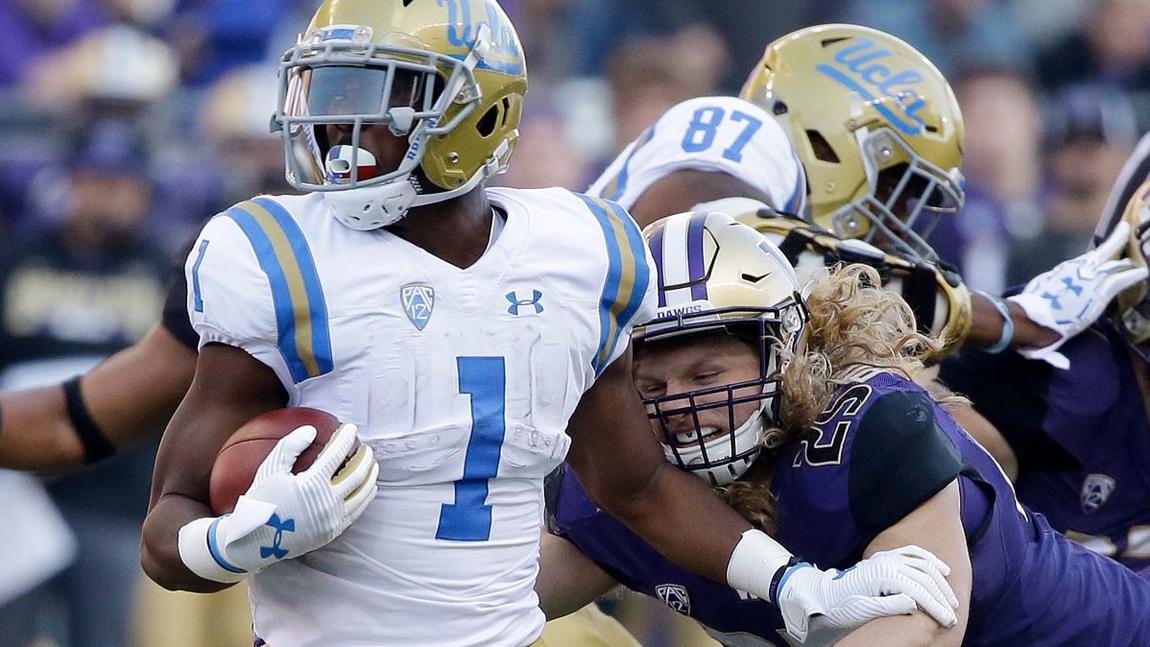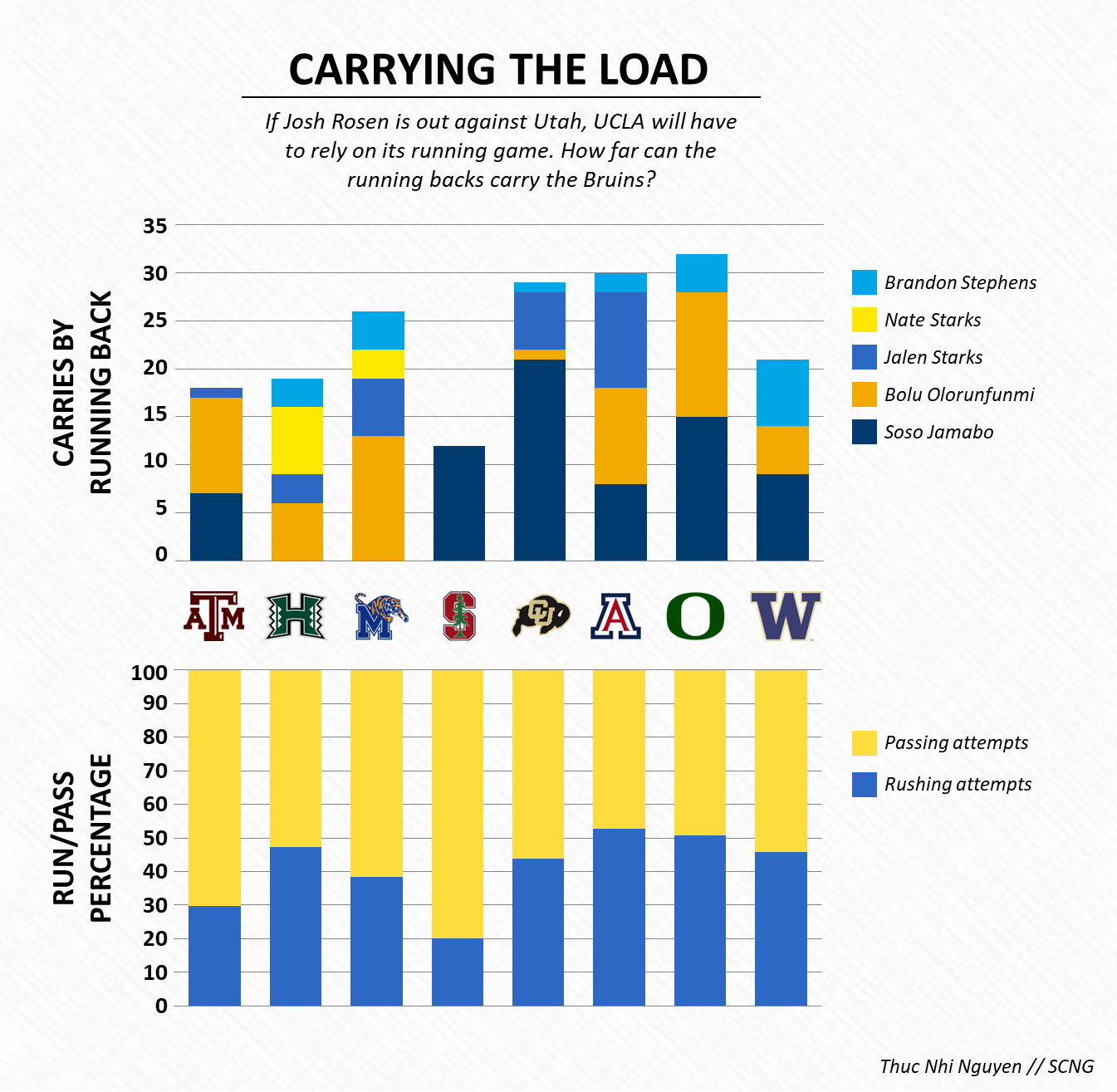
UCLA’s Soso Jamabo carries the ball as Washington’s Ben Burr-Kirven attempts a tackle on Oct. 28 at Husky Stadium. (Elaine Thompson/Associated Press)
Josh Rosen‘s right arm can do a lot of heavy lifting for the UCLA offense. But with the star junior quarterback’s status still in question for Friday’s game against Utah, the Bruins are going to need other weapons to step up if backup Devon Modster ends up making his first career start.
Enter Soso Jamabo and UCLA’s running backs.
“To be able to run the ball would give a lot of confidence to the rest of the offense and him (Modster) as well,” the junior from Texas said. “So we want to get the run going, be able to protect and I think Devon will be able to make a lot of good plays out there on Friday.”
Here’s a look at which running backs have been carrying the offense so far and how much the rushing game has handled:

After relying heavily on the pass early in the year, Jedd Fisch and the Bruins have started to balance their offense more during the past month. UCLA ran the ball on 40 percent or more of its plays in each of the past four games after doing so only once in the first four games.
DeShaun Foster said during spring practice that he wanted to find a featured back, but the Bruins are now relying on a tag-team attack with Jamabo and Bolu Olorunfunmi. Jamabo leads the team with 72 carries and Olorunfunmi is second with 58. However, Olorunfunmi has been closing the gap in recent weeks with 28 carries in the past three games compared to Jamabo’s 32 during that span. Despite the discrepancy in the number of carries, Olorunfunmi has only 1 fewer rushing yard than Jamabo on the year (342 to 343).
The Bruins haven’t had Jalen Starks in the backfield for the past two weeks due to an ankle injury. He’s still questionable for Friday’s game, but without the bruising sophomore, UCLA’s rushing attack has been less efficient. Against Oregon and Washington, the Bruins averaged 3.8 and 2.2 yards per carry, respectively. UCLA rushed for less than 4 yards per carry only twice in its first six games of the year.
